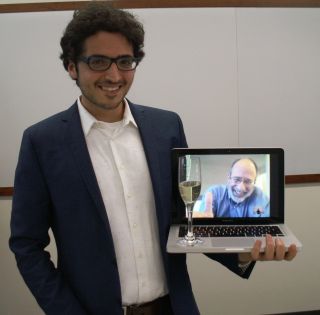At the same time as some sexual repugnances are diminishing (e.g. same sex marriage), other kinds of sexual liaisons, such as those between college faculty and undergraduate students now meet with increased disapproval and regulation. A recent article in the Boston Review tries to put that in historical perspective:
The Erotics of Mentorship, by Marta Figlerowicz and Ayesha Ramachandran
"In twelfth-century France, the prominent logician and theologian Abelard and his pupil Heloise famously struggle, in a series of letters, to determine whether the bond between them is intellectual or romantic."
**********
Here's Wikipedia on Abelard, and on Heloise. I hadn't remembered the details of their affair, but the outcome was quite drastic for both of them. Abelard continued to teach for much of his life, which wasn't so easy.
See my earlier post
The Erotics of Mentorship, by Marta Figlerowicz and Ayesha Ramachandran
"In twelfth-century France, the prominent logician and theologian Abelard and his pupil Heloise famously struggle, in a series of letters, to determine whether the bond between them is intellectual or romantic."
**********
Here's Wikipedia on Abelard, and on Heloise. I hadn't remembered the details of their affair, but the outcome was quite drastic for both of them. Abelard continued to teach for much of his life, which wasn't so easy.
See my earlier post
Sunday, April 25, 2010
Faculty-student liasons repugnant at Yale
From the Yale alumni magazine: University bans faculty-student sex





